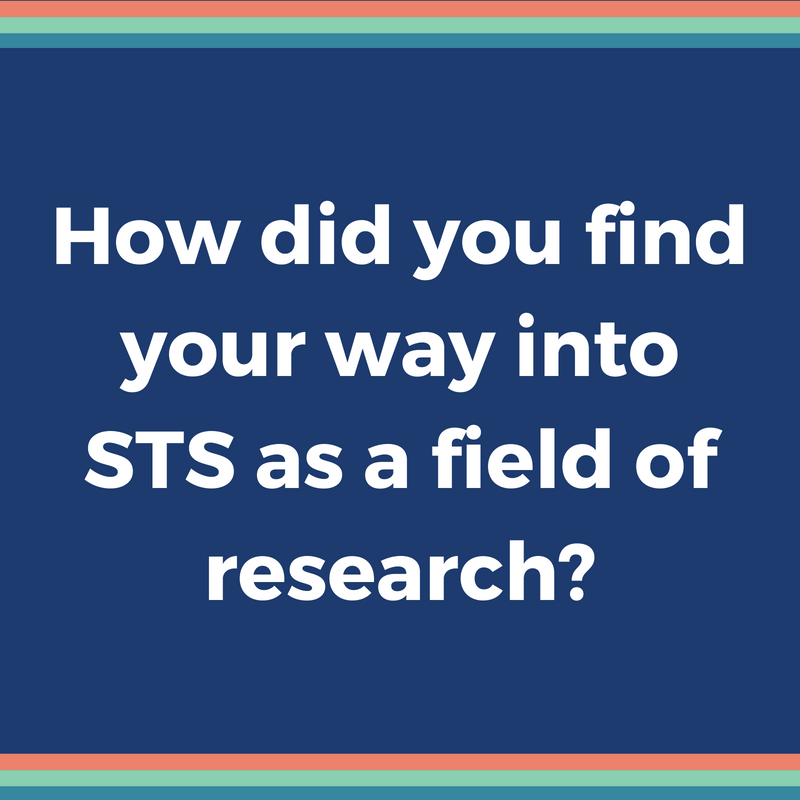
"When I first worked in the Sociology department at Lancaster University in England I was thrilled to discover that my colleagues included John Law, one of the leading thinkers in Actor Network Theory; Sarah Franklin, a leader in feminist anthropological study of assisted reproductive technologies; and Lucy Suchman, one of the leading thinkers in feminist STS, who later served as President of the Society for Social Studies of Science. They were great colleagues, doing really exciting work that certainly inspired me to learn more about STS. But I also came to STS via my background in Caribbean Studies, which led me to look at the history of scientific journeys, botanical collecting, and medical science through the lens of colonial history."
"I came to STS from a desire to understand more about writing and erasing. What gets written, archived, lost or erased from the annals of history? Who controls and/or comprehends the tools and techniques we use to: make marks, compose, erase, informationalize, create, code, design, etc.?"
"It happened progressively. I completed a PhD in anthropology, but my research already focused on science and technology. I found that STS scholarship on infrastructure, space and care was a great complement to the cultural/medical anthropology literature I had been trained with. Then, I had a postdoctoral fellowship in an interdisciplinary research environment, the Department of Social Studies of Medicine, at McGill University. My work gradually became as much in dialogue with STS as it is with anthropology."
"I majored in STS as an undergraduate and then completed a PhD in History and Sociology of Science (at Penn), so I’ve been immersed in this field for essentially my entire academic career. I think that my first introduction to the field was in high school, via Stephen Jay Gould’s “This View of Life” essays in Natural History magazine which made me aware that knowledge has a history and that this history could be as fascinating as the science itself."
"I was first exposed to STS while teaching science and technology policy in Drexel University’s STS program in the early 2000s. More recently, engagement with questions of materiality and posthumanist frameworks has fertilized a lot of interesting work in Environmental Political Theory, my home discipline."
"I found my way into STS through feminist sociological and anthropological work on biomedicine. I remember reading Donna Haraway's Simians, Cyborgs, and Women while I was taking the train early in graduate school and having a light bulb moment. I became fascinated by questions about science as a social and cultural product."
"A graduate student friend heard about the Society for Social Studies of Science (4S) annual meeting and STS while doing research at MIT. Given my interests, she encouraged me to participate in 4S. I went to my first 4S meeting in Halifax, Nova Scotia in 1998. The sense of community and willingness to get into the nitty gritty details of the politics of technoscience were invigorating. The annual meetings provided a venue to develop my early work on magnetic resonance imaging (MRI) technology in a STS direction. I have drawn on this approach ever since."